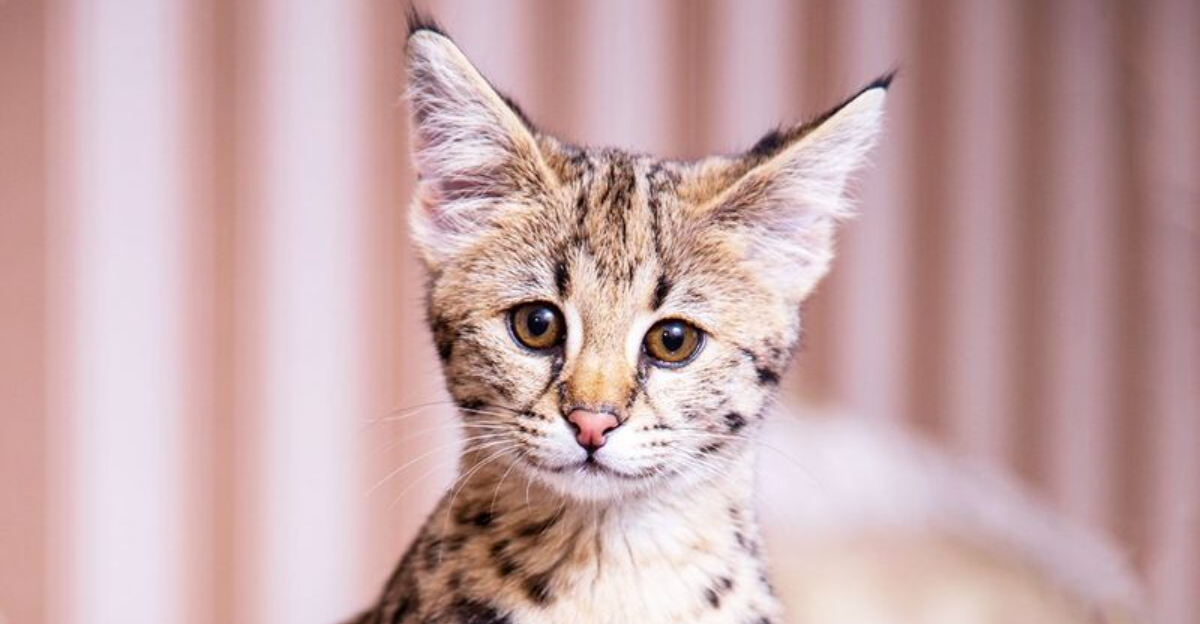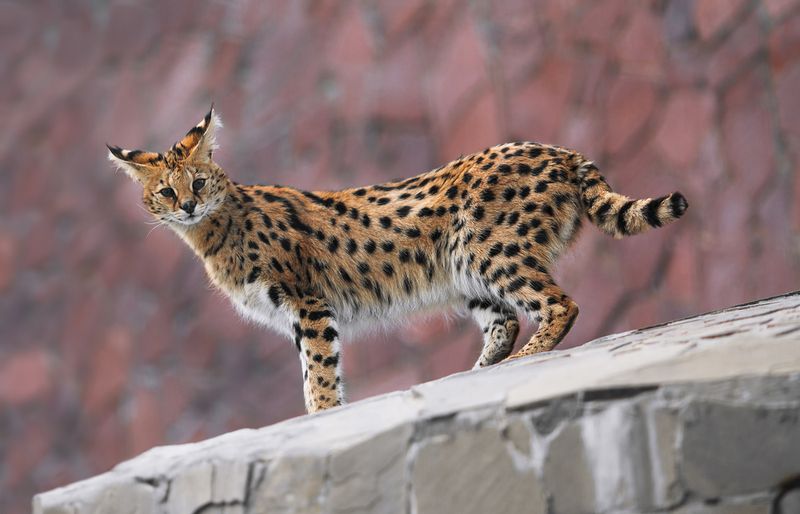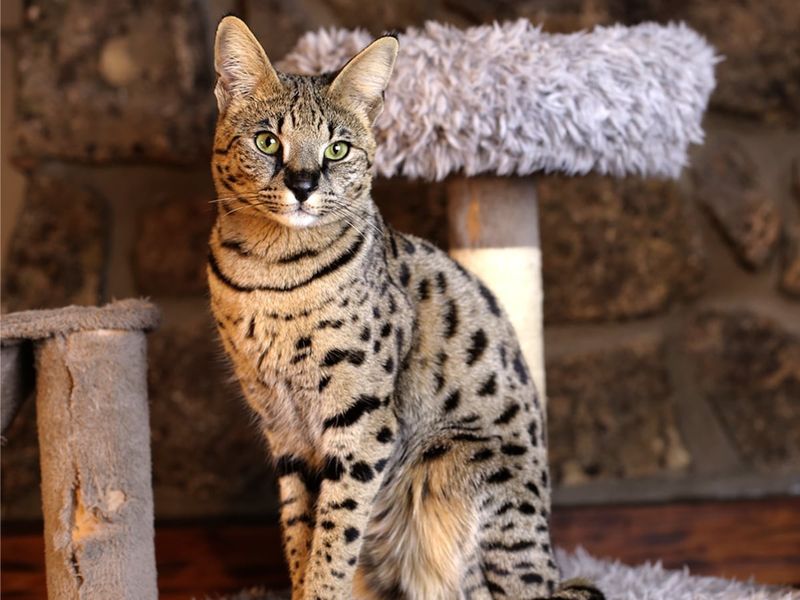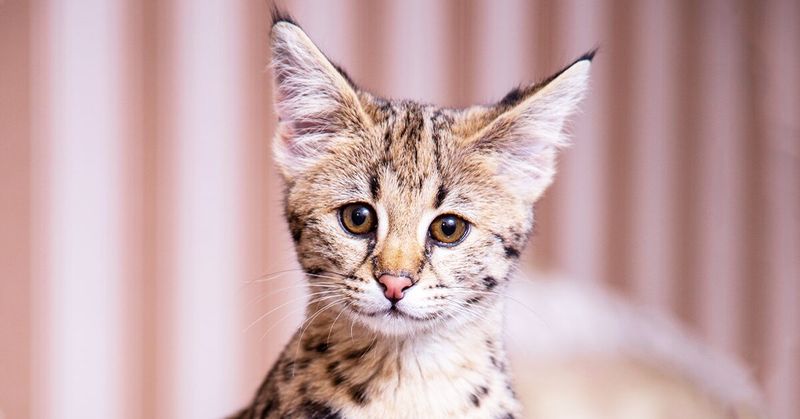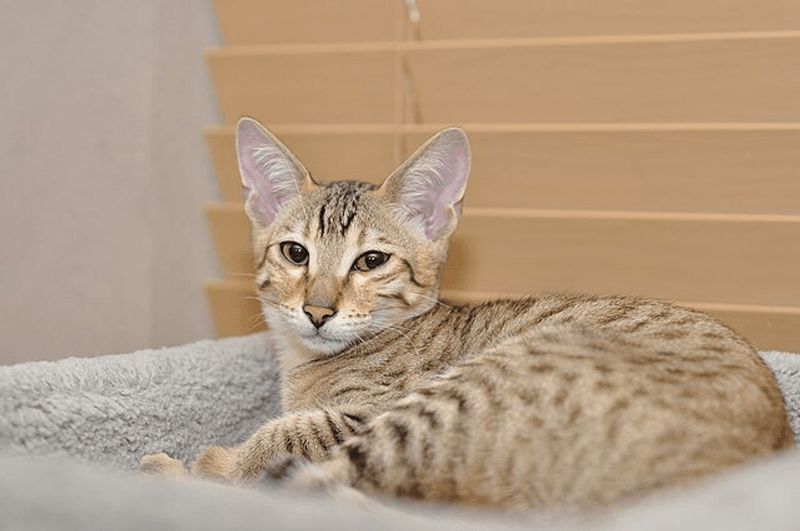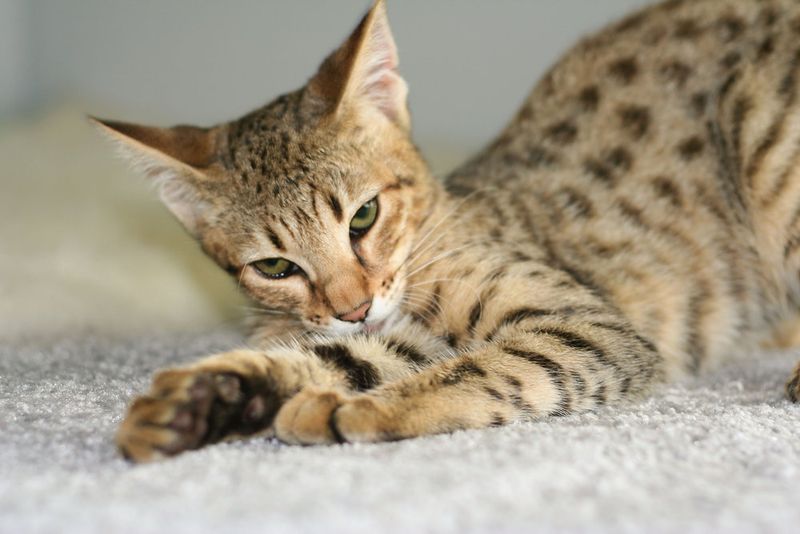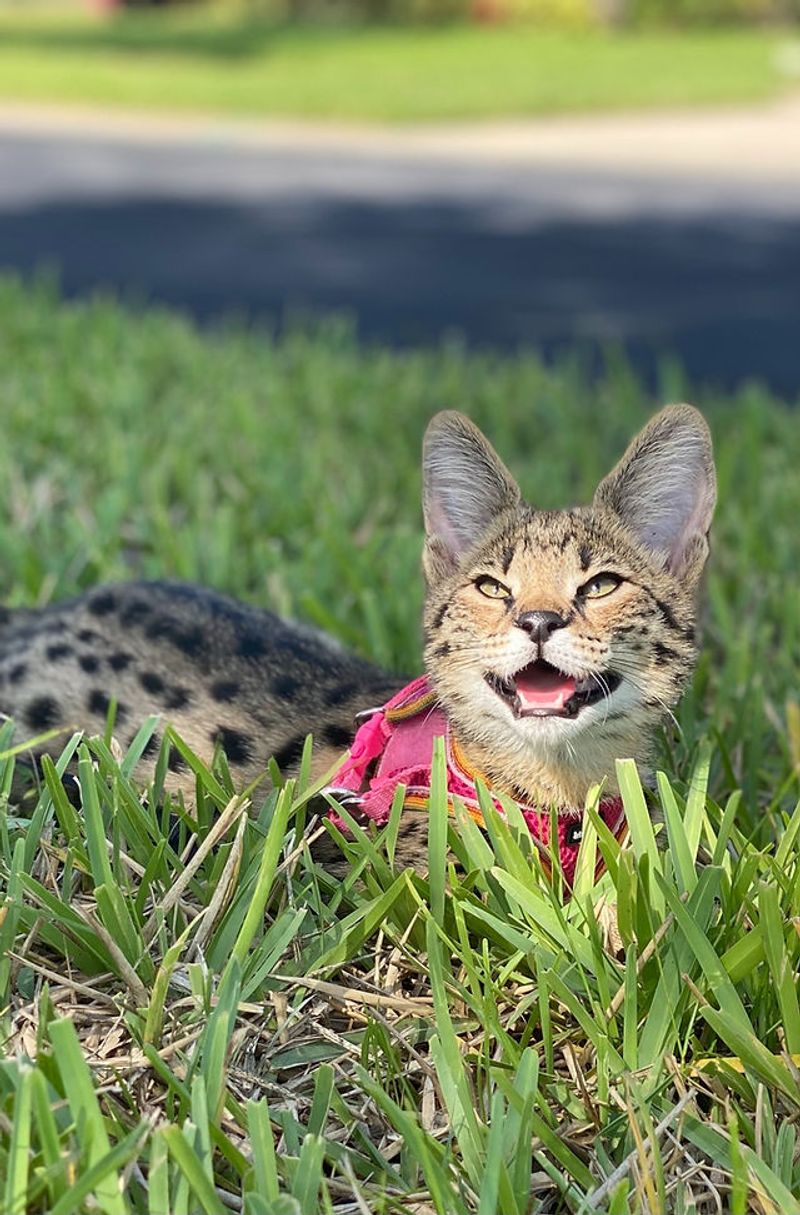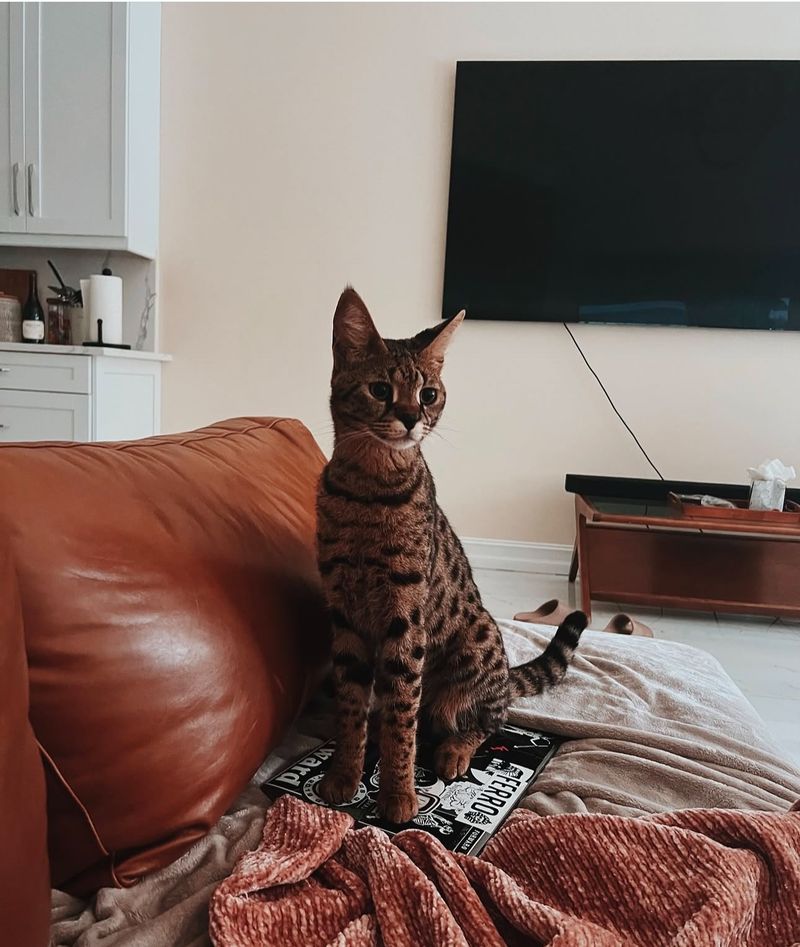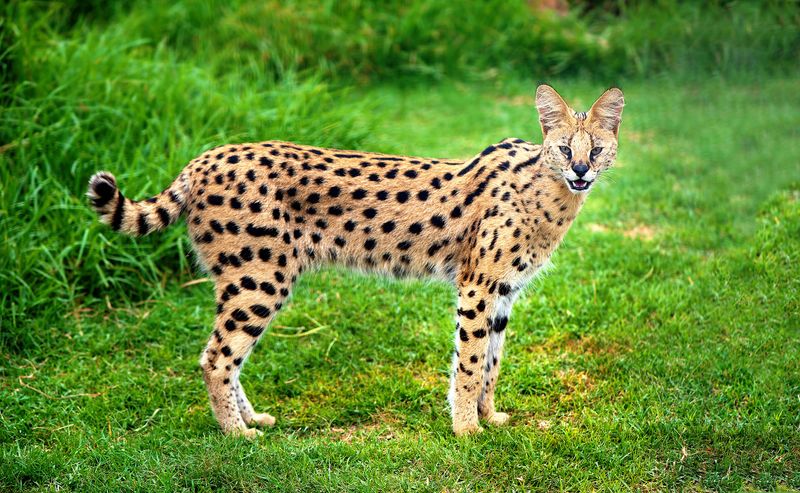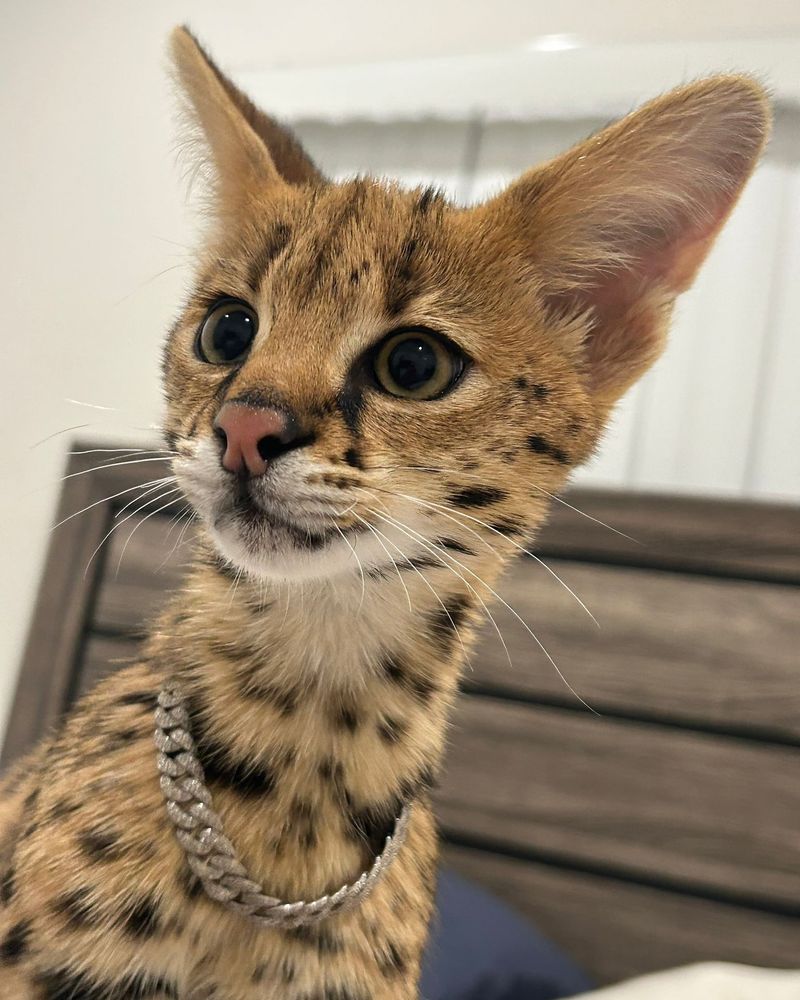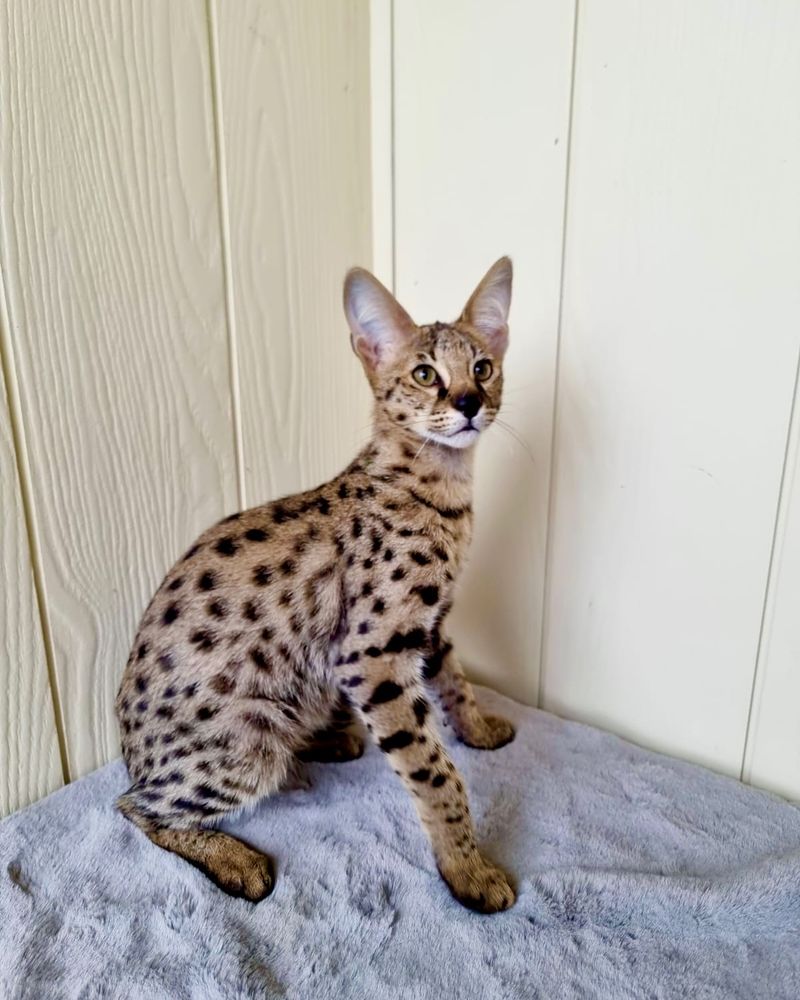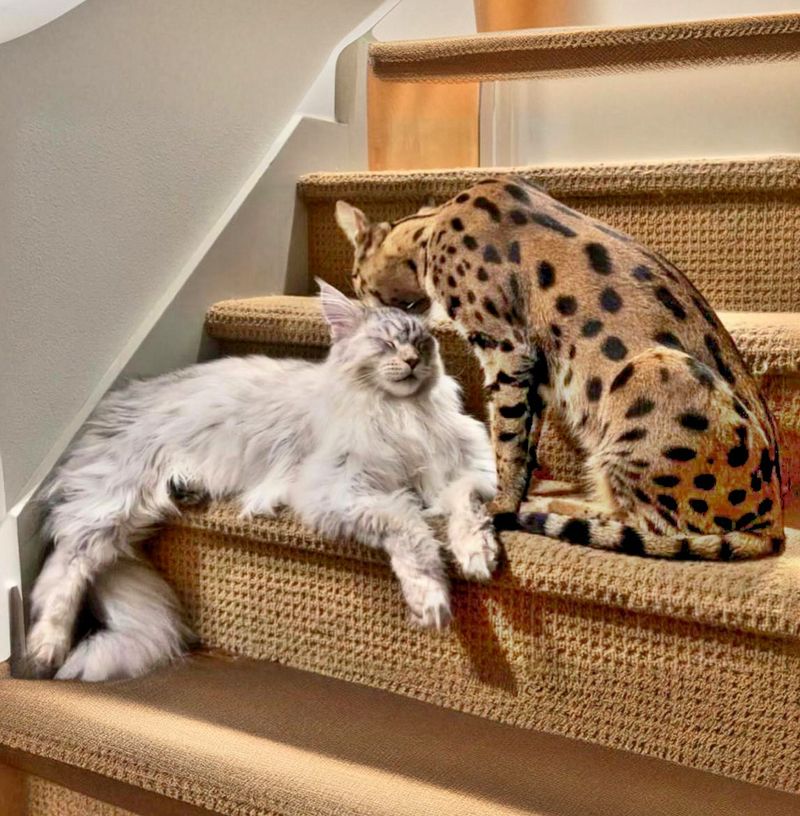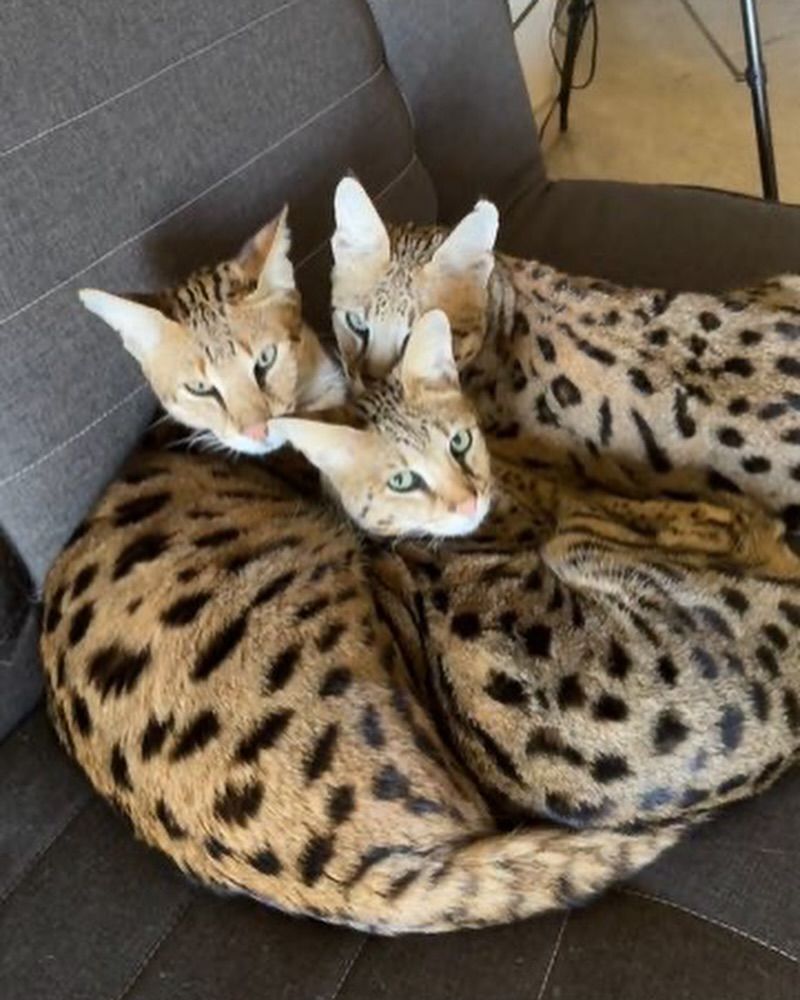📖 Table of Content:
Among the many domestic cat breeds, few are as mesmerizing and conversation-worthy as the Savannah cat. This hybrid feline, a cross between a domestic cat and the African serval, combines exotic beauty with an array of rare behavioral traits. It’s no wonder that pet enthusiasts and breeders alike consider Savannahs one of the most exceptional and captivating cat breeds in the world.
Their distinctive blend of wild ancestry and domestic charm gives them a personality that defies typical feline expectations. Unlike more conventional house cats, Savannahs bring a whole new level of interaction, intelligence, and energy into the home. Their sheer presence—sleek, powerful, and elegant—feels like a living work of art that also happens to purr and play fetch.
With a blend of stunning visuals, unique sounds, and dynamic personalities, Savannah cats represent more than just pets—they embody an experience. They challenge owners to think creatively, adapt quickly, and forge deeper emotional connections with their animals. Whether you’re an experienced cat owner or new to the world of feline companionship, understanding the extraordinary features of the Savannah breed opens a window into a truly unparalleled pet ownership journey.
1. Exotic Ancestry
Tracing their lineage to the wild plains of Africa, Savannah cats are the offspring of a domestic cat and the African serval. This remarkable genetic pairing infuses them with a host of physical and behavioral traits rarely seen in other breeds. The serval’s wild nature is partially preserved in their offspring, making them bold, inquisitive, and instinct-driven. While domestic in legal status and behavior, Savannahs still carry a piece of the wilderness in their gaze and stride. Their background influences everything from their height to their vocalizations, setting them apart from cats with purely domestic bloodlines. It’s not just a matter of pedigree—it’s a visible, audible, and behavioral distinction. Such ancestry lends them an aura of mystery and nobility that’s hard to ignore.
2. Striking Appearance
Visually, Savannah cats could be mistaken for miniature jungle cats thanks to their dramatic coats and long limbs. Their fur is typically marked with dark spots and stripes on a background of gold, silver, or black smoke. These markings resemble those of wild cats such as cheetahs or ocelots, contributing to their exotic allure. Long necks, large upright ears, and hooded eyes complete their untamed look, creating an unmistakable silhouette. Unlike most domestic breeds, their build is long and lean rather than round and fluffy. Even the shape of their tails—thick and relatively short—adds to their uniqueness. As soon as they enter a room, they draw eyes and admiration without trying.
3. Highly Intelligent
Intelligence in Savannah cats isn’t just an occasional burst of cleverness; it’s a constant, dynamic part of their personality. They solve problems, open doors, and even learn to operate light switches or faucets. Training them to perform tricks is not only possible but enjoyable for both pet and owner. Mental stimulation is a necessity, not a luxury, for these fast-learning felines. Without challenges, they may create their own entertainment, often to the dismay of unsuspecting furniture. Their smarts demand respect and an environment tailored to their cognitive needs. This brainpower turns them into interactive companions rather than passive housemates.
4. Dog-Like Personality
Acting more like canines than typical cats, Savannahs often surprise their owners with unexpected loyalty and behavior. They are known to follow their humans around the house, eager for companionship and play. Leash walking isn’t just tolerated—it’s often enjoyed, as these cats relish exploring the outdoors safely. Fetch is another favorite activity, adding to their dog-like charm. Unlike aloof breeds, Savannahs crave interaction and are quick to bond with people. Many will even greet their owners at the door with enthusiasm. Such sociability sets them apart in a world where independence is the feline norm.
5. Exceptional Jumping Ability
Rocketing to heights that would challenge most domestic cats, Savannahs can jump up to 8 feet vertically from a standstill. This astounding skill allows them to perch on top of refrigerators, cabinets, and doors without effort. Their leg power is inherited from the serval, a wild hunter that uses elevation as an advantage. Households with Savannahs quickly learn to expect the unexpected—like a cat resting on the highest bookshelf. These high perches aren’t just destinations; they’re observation posts for the ever-curious Savannah. Owners often install cat trees or wall shelves just to meet this need for altitude. Their vertical prowess makes their environment a three-dimensional playground.
6. Energetic and Playful
Boundless energy defines much of the Savannah cat’s daily rhythm, making them far more active than many house cats. Playtime isn’t a brief diversion—it’s a full-body sport involving leaps, chases, and tumbles. They thrive in interactive environments where games and puzzles challenge their agility and wit. Static routines bore them, often leading to mischievous behavior in the absence of engagement. Because of this, enrichment tools like feather wands, treat puzzles, and climbing spaces are must-haves. They’re not couch potatoes; they’re full-time athletes in fur coats. With their enthusiasm comes a demand for equally active owners or compatible pet companions.
7. Affectionate and Loyal
Emotional depth is another trait that makes Savannah cats stand out—they don’t just tolerate their humans, they adore them. Unlike more aloof breeds, they seek physical closeness, from curling up beside you to resting on your shoulder. Their loyalty is often compared to that of dogs, forming bonds with their primary caregivers that last a lifetime. This attachment is particularly strong when the cat is raised with plenty of affection and socialization. They can be possessive and may even show signs of jealousy if attention shifts elsewhere. When they trust you, the bond is profound and enduring. Emotional engagement is not optional for these cats—it’s foundational.
8. Hypoallergenic Qualities
For those with mild cat allergies, Savannahs may offer a welcome surprise. Though not officially hypoallergenic, many report fewer allergic reactions to them compared to traditional breeds. The lower levels of certain proteins like Fel d 1 in their saliva may be part of the reason. Less shedding also contributes to reduced allergen spread around the home. They tend to groom themselves frequently but efficiently, reducing dander output. Of course, individual results vary, and sensitive individuals should test exposure first. Still, this potential benefit broadens their appeal beyond exotic aesthetics. They provide a unique option for allergy-aware animal lovers.
9. Unique Vocalizations
Every Savannah cat has a vocal signature that blends domestic meows with wild serval chirps and hisses. Their range of sounds is wide and expressive, making communication with them an ongoing conversation. A short chirp may indicate excitement, while a deep growl might signal caution or alertness. These vocalizations often surprise first-time owners who expect the typical “meow.” They use sound to express a variety of emotions, including affection, curiosity, or territorial warnings. The result is a soundtrack that’s as exotic as their appearance. Living with a Savannah means embracing a new auditory language entirely.
10. Legal Rarity
Depending on where you live, owning a Savannah cat—especially those in the early generations (F1-F3)—can be subject to regulations or outright bans. States and countries may restrict ownership due to their wild ancestry and perceived unpredictability. This legal framework adds a layer of complexity to acquiring and keeping one. Higher filial generations are often viewed more leniently, but it’s essential to research your local laws. Their rarity in some regions makes them all the more desirable and exclusive. Responsible breeders work within these laws to provide safe and legal adoptions. For potential owners, due diligence is not just smart—it’s required.
11. Social with Other Pets
Adaptability is one of the underappreciated traits of Savannah cats, especially when it comes to living with other animals. When introduced properly, they can coexist peacefully with other cats and even dogs. Early socialization plays a key role in their acceptance of fellow pets. They may assert dominance at first, but aggression isn’t typically their default response. Their high energy may overwhelm more passive animals, so choosing the right companions is important. With patience and the right temperament match, Savannahs can thrive in multi-pet households. Their curiosity often helps bridge the gap between species more quickly than expected.
12. Long Lifespan
Durability defines more than just the physical traits of the Savannah cat—they’re built for longevity. Many live well into their late teens, with some reaching the 20-year mark under proper care. A combination of hybrid vigor and robust genetics contributes to this extended life expectancy. Regular vet visits, a proper diet, and active engagement are key to maintaining their health. Unlike some breeds prone to genetic diseases, Savannahs tend to be resilient if responsibly bred. This long lifespan turns the investment of time and energy into a decades-long bond. For those ready to commit, the reward is lasting companionship.
